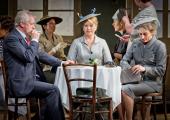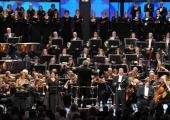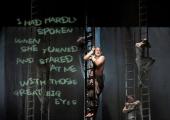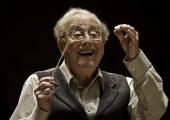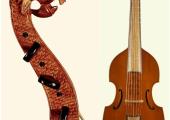The Cunning Little Vixen, Glyndebourne Festival Opera

Meeting of animal and human worlds has the right earthiness in Melly Still's production
Glyndebourne nature, it seems, runs along as smoothly as the much discussed new wind turbine on the hill. Within the theatre, though, all is flux: director Melly Still and Vladimir Jurowski, conducting an incandescent London Philharmonic Orchestra, show just how flexible it's possible to be with the viciousness and the vivacity in Janáček's kaleidoscope of birth, copulation, death and a redemption of sorts in celebration of the natural order.


